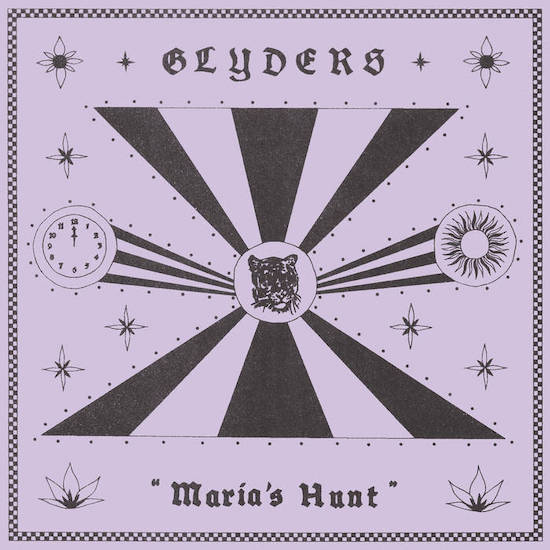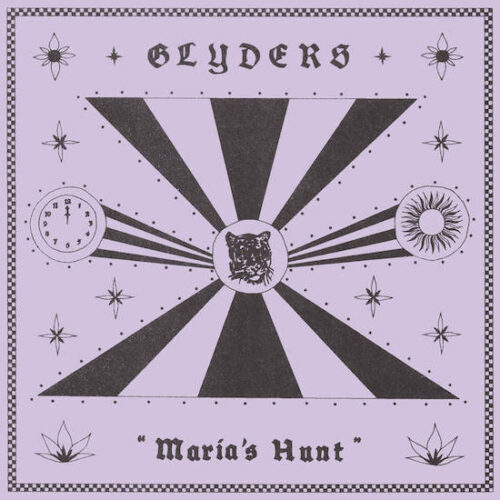For those not in the know, Glyders are a duo formed in 2014 in Chicago. Partners-in-crime Joshua Condon and Eliza Weber have self-released a couple of EPs before Maria’s Hunt. They define their own sounds as maximal minimal rock and roll and listening to their discography it is hard to disagree. They are, first and foremost, a lo-fi rock band, making music with cheap means. They clearly have a taste for dusty analogue recordings and they work outside the bounds of compulsive high fidelity. The studio industrial complex has nothing on ‘em. But despite – or, more accurately, by virtue – of their sonic poverty, Glyders’ sound is a lot to take in: lush, exuberant, vibrant. Their rock and roll may not be the most innovative thing on the market, but their rock songs shoot for Mark Bolan-esque grandeur and high psychedelic weirdness and their ballads exude road-weary outlaw extravaganza. Sheer guitar joy.
Maria’s Hunt – Glyders’ first proper LP, released by Drag City – is a rare psychedelic gem. It outdoes whatever came prior in the Glyders-verse and it is plain to see from the very beginning. ‘High Time’ kicks things off in grand style: a tense, simple guitar circling round and round while fried circuits squeak and bleep front and centre. The sound is both elated and sparse. It is hard kraut-americana, a bizarre concoction bound together with alchemical ease. Neu! and Steppenwolf and MC5 and some Dead Moon, conjuring the electrical sounds of shadowland roadhouses. The soundtrack for mutant creatures running down post-industrial desert highways in the dead of an August night.
Maria’s Hunt’s stylistic baseline is the same as it ever was with Glyders: minimal, yet maximal. The album does not break Glyders’ vow of sonic chastity. Almost-nothing is way, way more. The record is proudly analogue and DIY. There are some flourishes here and there on top of the classic guitar-bass-and-drums, but never to the point of not sounding like something recorded in a tool-shed in the middle of nowhere. Structurally speaking, all of the songs are simple and hypnotic and repetitive. Genre-wise, the record is neatly divided in two: psych-rock barn burners and desolate acid-country ballads.
The album is chockfull of magical moments: ‘Golden Hour’’s THC motorik or the sunburnt peace of ‘Can’t Beat the Heat’ or the enchanting double-feature call-and-response ‘Shoreline’ and ‘Shoreline (reprise)’, with its dementedly blissful “what a time to be alive” repeated throughout the songs. The duds are minor and lost in the overall experience of the album. Namely, ‘Smooth Walker’ and ‘Wrong Sometimes Sight’ don’t bite or amaze like the rest, but once the album is through I’m still glad they’re there.
Now we just have to wait for the temperatures to rise. I’m sure Maria’s Hunt has such sights to show us in summer’s scorching heat.



